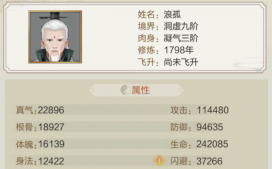ArrayList的存储就是一个数组,
HashMap的存储是一个数组加一个链表,

以下实现的MyArrayList及MyHashMap,在实际的工作中都是用不上的,最有可能用得到的地方就是面试找工作以及忽悠别人了。工作中虽然用不上,但是并不代表没有用,它可以帮助我们去理解他们的实现原理,等实现完后再去仔细查看JDK中的源码,就会发现别人实现当中那些可供学习的地方。
MyArrayList
|
1
2
3
4
5
6
7
8
9
10
11
12
13
14
15
16
17
18
19
20
21
22
23
24
25
26
27
28
29
30
31
32
33
34
35
36
37
38
39
40
41
42
43
44
45
46
47
48
49
50
51
52
53
54
55
56
57
58
59
60
61
62
63
64
65
66
67
68
69
70
71
72
73
74
75
76
77
78
79
80
81
82
83
84
85
|
public class MyArrayList<E> { private int capacity = 10; private int size = 0; private E[] values = null; @SuppressWarnings("unchecked") public MyArrayList() { values = (E[]) new Object[capacity]; } @SuppressWarnings("unchecked") public MyArrayList(int capacity) { this.capacity = capacity; values = (E[]) new Object[this.capacity]; } public void put(E e) { if (e == null) { throw new RuntimeException("The value should not be null."); } if (size >= capacity) { enlargeCapacity(); } values[size] = e; size++; } public E get(int index) { if (index >= size) { throw new RuntimeException("The index:" + index + " is out of band."); } return values[index]; } public void remove(int index) { if (index >= size) { throw new RuntimeException("The index:" + index + " is out of band."); } for (int i = index; i < size - 1; i++) { values[i] = values[i + 1]; } values[size - 1] = null; size--; } @SuppressWarnings("unchecked") private void enlargeCapacity() { capacity = capacity * 2; E[] tmpValues = (E[]) new Object[capacity]; System.arraycopy(values, 0, tmpValues, 0, size); values = tmpValues; } public String toString() { StringBuilder sb = new StringBuilder(); sb.append("["); for (int i = 0; i < size; i++) { sb.append(values[i]).append(","); } if (size > 0) { sb.deleteCharAt(sb.length() - 1); } sb.append("]"); return sb.toString(); } /** * @param args */ public static void main(String[] args) { MyArrayList<String> myList = new MyArrayList<String>(); myList.put("1"); myList.put("2"); myList.put("3"); myList.put("4"); myList.put("5"); myList.put("6"); myList.put("7"); myList.put("8"); myList.put("9"); myList.remove(7); System.out.println(myList.toString()); } } |
MyHashMap
|
1
2
3
4
5
6
7
8
9
10
11
12
13
14
15
16
17
18
19
20
21
22
23
24
25
26
27
28
29
30
31
32
33
34
35
36
37
38
39
40
41
42
43
44
45
46
47
48
49
50
51
52
53
54
55
56
57
58
59
60
61
62
63
64
65
66
67
68
69
70
71
72
73
74
75
76
77
78
79
80
81
82
83
84
85
86
87
88
89
90
91
92
93
94
95
96
97
98
99
100
101
102
103
104
105
106
107
108
109
110
111
112
113
114
115
116
117
118
119
120
121
122
123
124
125
126
127
128
129
130
131
132
133
134
135
136
137
138
139
140
141
142
143
144
145
146
147
148
149
150
151
152
153
154
155
156
157
158
159
160
161
162
163
164
165
166
167
168
169
170
171
172
173
174
175
176
177
178
179
180
181
182
183
184
185
186
187
188
189
190
191
192
193
194
195
196
197
198
199
200
201
202
203
204
205
206
207
208
209
210
211
212
213
214
215
216
217
218
219
220
221
222
223
224
225
226
227
228
229
230
231
232
233
234
235
236
237
238
239
240
241
242
243
244
245
246
247
248
249
250
251
|
public class MyHashMap<K, V> { //initialization capacity private int capacity = 10; //total entities private int size = 0; private Entity<K, V>[] entities = null; @SuppressWarnings("unchecked") public MyHashMap() { entities = new Entity[capacity]; } public void put(K key, V value) { if (key == null) { throw new RuntimeException("The key is null"); } reHash(); Entity<K, V> newEntity = new Entity<K, V>(key, value); put(newEntity, this.entities, this.capacity); } private void put(Entity<K, V> newEntity, Entity<K, V>[] entities, int capacity) { int index = newEntity.getKey().hashCode() % capacity; Entity<K, V> entity = entities[index]; Entity<K, V> firstEntity = entities[index]; if (entity == null) { entities[index] = newEntity; size++; } else { if (newEntity.getKey().equals(entity.getKey())) {//Find the same key for the first entity, if find then replace the old value to new value newEntity.setNext(entity.getNext()); newEntity.setPre(entity.getPre()); if (entity.getNext() != null) { entity.getNext().setPre(newEntity); } entities[index] = newEntity; } else if (entity.getNext() != null) { while (entity.getNext() != null) {//Find the same key for all the next entity, if find then replace the old value to new value entity = entity.getNext(); if (newEntity.getKey().equals(entity.getKey())) { newEntity.setPre(entity.getPre()); newEntity.setNext(entity.getNext()); if (entity.getNext() != null) { entity.getNext().setPre(newEntity); } entities[index] = newEntity; return; } } //Cannot find the same key, then insert the new entity at the header newEntity.setNext(firstEntity); newEntity.setPre(firstEntity.getPre()); firstEntity.setPre(newEntity); entities[index] = newEntity; size++; } else { //Cannot find the same key, then put the new entity in head newEntity.setNext(firstEntity); firstEntity.setPre(newEntity); entities[index] = newEntity; size++; } } } public V get(K key) { if (key == null) { throw new RuntimeException("The key is null"); } int index = key.hashCode() % capacity; Entity<K, V> entity = entities[index]; if (entity != null) { if (entity.getKey().equals(key)) { return entity.getValue(); } else { entity = entity.getNext(); while (entity != null) { if (entity.getKey().equals(key)) { return entity.getValue(); } entity = entity.getNext(); } } } return null; } public void remove(K key) { if (key == null) { throw new RuntimeException("The key is null"); } int index = key.hashCode() % capacity; Entity<K, V> entity = entities[index]; if (entity != null) { if (entity.getKey().equals(key)) { if (entity.getNext() != null) {//remove the first entity entity.getNext().setPre(entity.getPre()); entities[index] = entity.getNext(); entity = null; } else {//empty this index entities[index] = null; } size--; } else { entity = entity.getNext(); while (entity != null) { if (entity.getKey().equals(key)) { if (entity.getNext() != null) { entity.getPre().setNext(entity.getNext()); entity.getNext().setPre(entity.getPre()); entity = null; } else { //release the found entity entity.getPre().setNext(null); entity = null; } size--; return; } entity = entity.getNext(); } } } } public String toString() { StringBuilder sb = new StringBuilder(); for (int i = 0; i < capacity; i++) { sb.append("index=").append(i).append("["); boolean hasEntity = false; Entity<K, V> entity = entities[i]; if (entity != null) { hasEntity = true; } while (entity != null) { sb.append("[").append(entity.getKey()).append("=").append(entity.getValue()).append("]").append(","); entity = entity.getNext(); } if (hasEntity) { sb.deleteCharAt(sb.length() - 1); } sb.append("]\n"); } return sb.toString(); } /** * Simple re-hash strategy, if the size is bigger than capacity, then do re-hash action */ private void reHash() { if (size >= capacity) { int newCapacity = capacity * 2; @SuppressWarnings("unchecked") Entity<K, V>[] newEntities = new Entity[newCapacity]; for (int i = 0; i < capacity; i++) { Entity<K, V> entity = entities[i]; while (entity != null) { put(entity, newEntities, newCapacity); entity = entity.getNext(); } } this.capacity = newCapacity; this.entities = newEntities; } } public static void main(String[] args) { MyHashMap<String, String> map = new MyHashMap<String, String>(); map.put("one", "1"); map.put("two", "2"); map.put("three", "3"); map.put("four", "4"); map.put("five", "5"); map.put("six", "6"); map.put("seven", "7"); map.put("eight", "8"); map.put("nine", "9"); map.put("ten", "10"); System.out.println(map.get("one")); System.out.println(map.get("two")); System.out.println(map.get("three")); System.out.println(map.get("four")); System.out.println(map.get("five")); System.out.println(map.get("six")); System.out.println(map.get("seven")); System.out.println(map.get("eight")); System.out.println(map.get("nine")); System.out.println(map.get("ten")); System.out.println(map.toString()); map.remove("nine"); map.remove("three"); System.out.println(map.get("one")); System.out.println(map.get("two")); System.out.println(map.get("three")); System.out.println(map.get("four")); System.out.println(map.get("five")); System.out.println(map.get("six")); System.out.println(map.get("seven")); System.out.println(map.get("eight")); System.out.println(map.get("nine")); System.out.println(map.get("ten")); System.out.println(map.toString()); } } class Entity<K, V> { private K key; private V value; private Entity<K, V> pre; private Entity<K, V> next; public Entity(K key, V value) { this.key = key; this.value = value; } public K getKey() { return key; } public void setKey(K key) { this.key = key; } public V getValue() { return value; } public void setValue(V value) { this.value = value; } public Entity<K, V> getPre() { return pre; } public void setPre(Entity<K, V> pre) { this.pre = pre; } public Entity<K, V> getNext() { return next; } public void setNext(Entity<K, V> next) { this.next = next; } } |
感谢阅读,希望能帮助到大家,谢谢大家对本站的支持!





